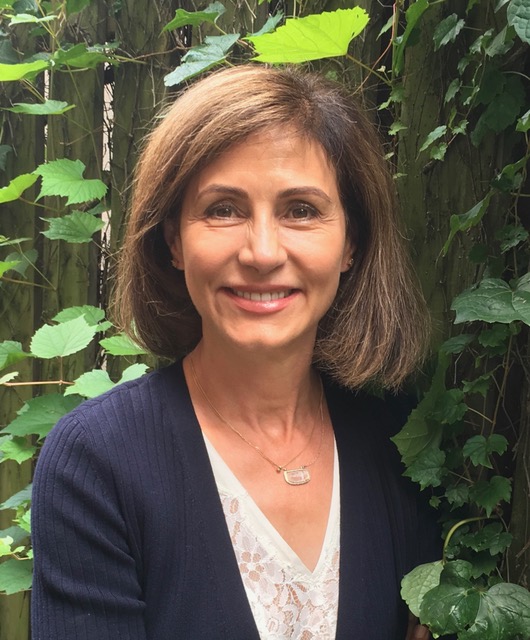| Member Spotlight: Catherine Wiseman-Hakes, PhD |

In each newsletter, we will feature an ANCDS member. This quarter we're talking with Catherine Wiseman-Hakes, PhD, a Clinician Researcher and Lecturer at the University of Toronto. Catherine's areas of expertise include cognitive rehabilitation neuroscience, basic science to clinical applications, cognitive-communication disorders, the role of sleep in neuroplasticity, cognition and neuro-recovery. Her clinical and research interests include cognitive-communication disorders in vulnerable populations (youth and adults in the criminal justice system, women survivors of intimate partner violence); and cognitive-communication and return to learn for students with mTBI/concussion and persistent symptoms.
ANCDS: Why did you become interested in the field of neurogenic communication disorders?
Catherine Wiseman-Hakes (CWH): I have always been a ‘neuro-geek’; fascinated by the brain and human behavior. When I started my masters in speech language pathology, I knew I wanted to focus on traumatic and acquired brain injury for my career path. Having my dear friend and mentor Lyn Turkstra as a supervisor during my final clinical externship cemented this desire! The impact of neurological impairments (subtle and not so subtle) on cognition and communication can have such a profound impact on quality of life. One of the things I love about this field is that it’s always growing and always challenging. The more we know, the more we realize there is to learn, which has been enhanced by increasingly sophisticated imaging techniques. I also love the human element, of helping people to have the highest possible communication competence, because ultimately, relationships are built on communication.
ANCDS: What research or clinical projects are you working on currently?
CWH: Currently, I am a co-investigator on a 3-year research project examining the intersection of TBI, mental health, and addictions, funded by the Ontario Ministry of Health and Long-Term Care, Health Systems Research Fund. I am co-leading one of four studies under the grant umbrella, which aims to examine knowledge and understanding of cognitive-communication and social communication impairments in youth and adults in the criminal justice system with TBI (or suspected TBI). Using a mixed methods approach, we are interviewing youth and adults in the CJS (with TBI or suspected TBI) as well as staff, with the ultimate objective of developing training and educational materials and informing policy. My co-lead is a sociologist and criminologist, so it is a fascinating project and we are learning from each other.
ANCDS: Why were you interested in this project?
CWH: This population is so underserved and so vulnerable, with a high incidence of recidivism and co-morbid mental health and addictions. Research shows that as many as 80% of adults and more than 50% of youth in the criminal justice system have a history of TBI, and a high percentage also have language and learning disabilities. They need rehabilitation and support, rather than punishment and incarceration, and staff need knowledge and training. I look at this as an opportunity to effect some positive change.
ANCDS: Why did you join ANCDS?
CWH: I joined ANCDS to be part of an internationally respected group of leaders and colleagues with clinical and research expertise in cognitive-communication disorders. To have access to guidelines and vetted evidence based clinical research, as well as mentorship, colleagues, and conference opportunities. I also joined because we are a very small group here in Canada, with far less opportunities, and so being part of ANCDS makes me feel supported by this international community.
ANCDS: What benefits do you enjoy most from ANCDS?
CWH: I’ve met so many leaders in the field who have inspired me and given me opportunities to learn and contribute. I also do a lot of advocacy work both for our profession and for our clients, and I have drawn on the support of ANCDS members to add to our voice here in Ontario, when we are not always heard.
ANCDS: Who are some of your mentors?
CWH: I am so fortunate to have great mentors in our profession. Lyn Turkstra is someone who I consider a life-long mentor and dear friend, and Mark Ylvisaker was also a mentor and dear friend. Roberta DePompeii is a mentor for my work with children and youth, and I am inspired by the work of Leanne Togher, Mary Kennedy, and Kathryn Hardin (to name a few!). I am also grateful for the lifelong friendship and professional collaborations with my fellow Canadian and ANCDS member Sheila MacDonald.
ANCDS: What advice do you have for students or early career clinicians/researchers?
CWH: I suggest finding a strong mentor if you can, either a professor or clinical supervisor if you’re a student, and a more senior clinician and researcher if you’re an early career clinician/researcher. Read as much as you can; both the SLP literature as well as the interdisciplinary literature and neuroscience literature. Look for opportunities to collaborate and be proud of what you know, and know when to ask! I also suggest getting some good clinical experience before moving into doctoral work (if that’s your passion) so that you can draw on your clinical experience as well as find a ‘burning question’ that you feel you must explore.
ANCDS: What do you do for fun/to relax?
CWH: I love to spend time with my three young adult kids. I’m also an avid ballet dancer and take classes regularly, as well as maintaining a regular yoga practice. Like many SLP’s, I love to read and am never without a book.
